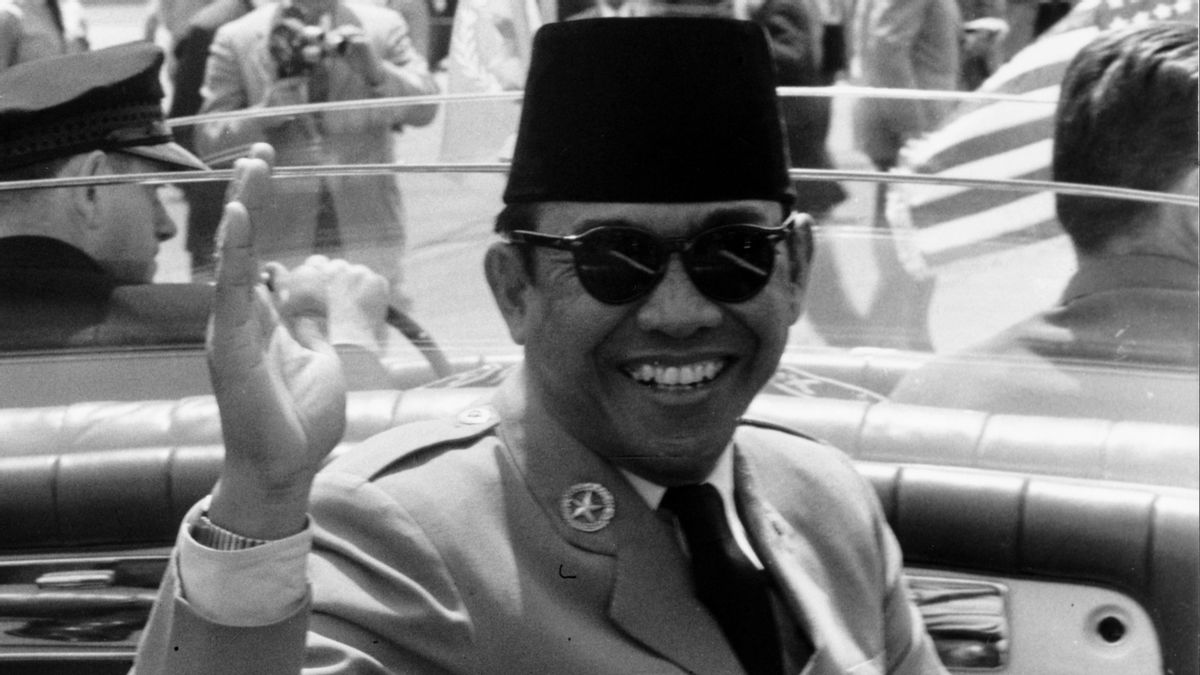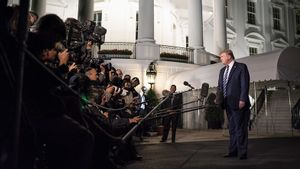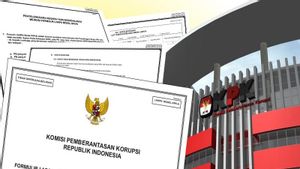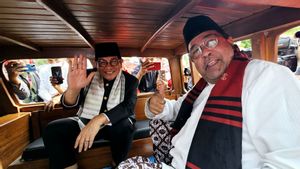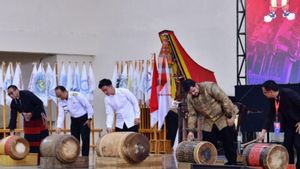JAKARTA - The proclaimer, Soekarno, is a person who has great concern for poverty. Not suddenly. Soekarno was born poor. Soekarno was formed from there, until he realized that poverty was dangerous. Poverty is not just an economic problem, but can also take the form of a cultural or behavioral crisis.
On almost every occasion, Big Brother proudly affirms that he lives in the midst of poverty. Yes, Bung Karno had a social status as a lowly priyai.
“My childhood was no different from David Copperfield. I was born in poverty and grew up in poverty. I don't have shoes. I take a shower not in the water that comes out of the tap. "
"I do not know spoons and forks. This outrageous absence can cause the heart to become sad," said Bung Karno, quoted by Cindy Adams in Bung Karno's book: Connect the Indonesian People's Tongue (1965).
Bung Karno added that the salary his father received, Soekemi, was not much. Bung Karno said the salary was only enough for daily meals and house rent. Life became increasingly difficult when Bung Karno was six years old.
At that time Bung Karno's family moved to Mojokerto. Bung Karno then lived in a neighborhood inhabited by most of the poor. However, they always have a little money left over to buy papaya or other snacks. Meanwhile, Bung Karno did not. He is poorer than people who are even considered poor in general.
"But I do not. Never, "said Bung Karno.
Bung Karno's sadness about poverty was getting worse every Eid. At that moment, all Muslims partied. But not for Bung Karno's family. His family never even partyed or gave out a fitrah. His family, said Bung Karno, did not have the money for that.
Never mind partying on the day of Eid, just to play firecrackers Bung Karno almost never felt it. He never had pocket money. Bung Karno could only peek at other children playing firecrackers through the air hole in his bedroom.
“All around there were the sound of firecrackers popping off between the cheers of my friends because of joy. How devastated my little heart is thinking, why all my comrades somehow can buy that one penny firecracker, and I can't! " Bung Karno.
More details regarding Bung Karno and firecrackers we have reviewed in the article "Gelagar History of Firecrackers in the Month of Ramadan".
A series of experiences during his childhood motivated Bung Karno to fight for and defend the destiny of the poor. Bung Karno courageously emerged as the main opponent who condemned colonialism and capitalism. Poverty became the basis for teaching Bung Karno to fight, defend, and bring independence from Dutch colonialism.
The ideology of marhaenismIn the course of his life, poverty shaped Bung Karno's image as a leader. As is well known, it was out of poverty that an ideology emerged from Bung Karno's thought process. This ideology is commonly known as "marhaenism."
"One day on the land of Priangan, young Bung Karno met a small farmer named Marhaen. This encounter would later become an important momentum in the form of the emergence of Marhaenism. "The understanding of defending the fate of the little people, small landless farmers or small farmers, factory workers, and anyone who does not have production facilities," wrote in the book Principles of Teaching Marhaenisme According to Bung Karno (2001).
The ideological discoveries were the fruit of observations around him, including his childhood. Bung Karno believed that most of the Indies population were small workers. Capitalism, said Bung Karno, is the mouth of poverty and misery. The capitalist system can exploit others. However, the concept of Marhaen Bung Karno looks different from the spirit of proletarian socialism echoed by the socialist thinker, Karl Marx.
Here Bung Karno is seen as being critical of himself, not simply taking the concept put forward by Western socialist thinkers. Quoted by Peter Kasenda in Bung Karno's book Panglima Revolusi (2014), the proletarian concept only has relevance in Western industrialized countries. For Indonesian society which is an agrarian society it is not possible.
“The concept of Marhaen represents the majority of the miserable and oppressed members of society, while the proletariat includes only a few members of society. What distinguishes the two is that the Marhaens have means of production, therapy the proletariat has no means of production and only sells services. Through Marhaenism as a theory of struggle, Soekarno buried the system of capitalism and imperialism from the face of the Indonesian earth, which is rich in natural resources, but its people are poor, "added Peter Kasenda.
In the end, the thought settled into Big Brother's head. Whether it was during school years, struggling, being exiled, until he became one of the figures who brought Indonesia to independence on August 17, 1945. The son of the couple Raden Sukemi Sastrodiharjo and Ida Ayu Nyoman Rai later made the Indonesian nation equal and equal in the international world. Bung Karno also united all ethnic groups into one nation, namely: the Indonesian nation.
The English, Chinese, Japanese, Arabic, and French versions are automatically generated by the AI. So there may still be inaccuracies in translating, please always see Indonesian as our main language. (system supported by DigitalSiber.id)
